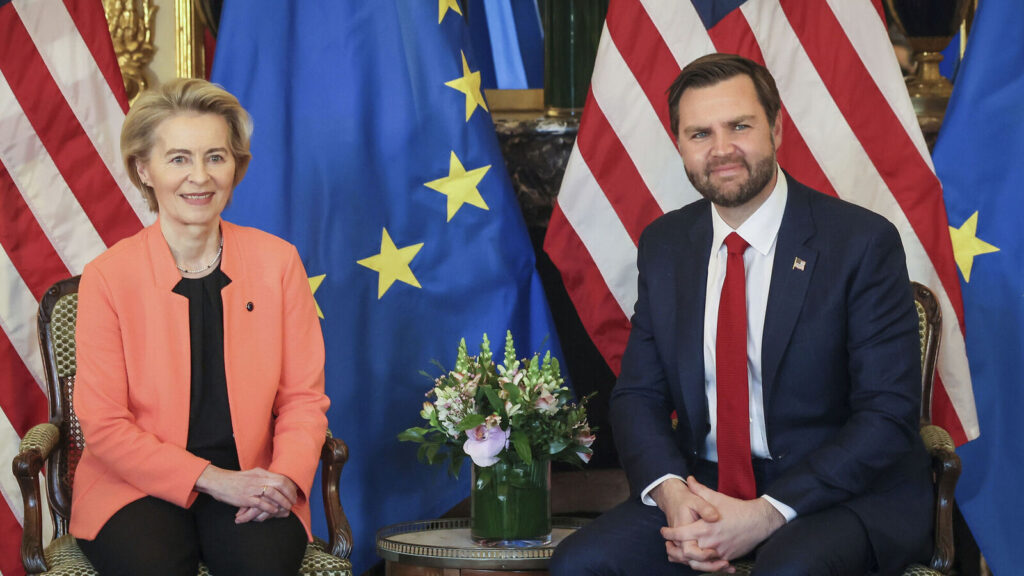
In a dramatic turn of events at the Paris AI Summit, the United States and United Kingdom have refused to sign a landmark declaration on sustainable and inclusive artificial intelligence, highlighting deepening fractures in the global approach to AI governance. What’s really happening behind the scenes and why this matters for everyone.
The Three-Way Battle for AI’s Future
The summit has laid bare three competing visions for AI’s future, each representing different priorities and approaches:
The American Vision
Freedom to Innovate The US stance, articulated by Vice President JD Vance, is crystal clear: minimal regulation is the path forward. “To restrict its development now will not only unfairly benefit incumbents in the space, it would mean paralyzing one of the most promising technologies we have seen in generations,” Vance emphasized. The US, currently leading with 33% of global data centers, sees European regulatory efforts as potential roadblocks to innovation.
The European Approach
Regulation and Sustainability France’s President Emmanuel Macron is championing a different path — one focused on ethical AI development and environmental sustainability. In a direct challenge to the American approach, Macron introduced what he calls the “third path” for AI: open, sustainable, and focused on serving the common good.
The Global South Perspective
Inclusivity and Access India, co-hosting the summit, brings a crucial third perspective to the table. Prime Minister Narendra Modi’s vision centers on ensuring AI benefits aren’t limited to developed nations. This approach emphasizes:
- Building local compute capacity
- Making data sets publicly available
- Creating opportunities for emerging economies
The Green AI Controversy
Here’s where things get interesting. The declaration’s emphasis on sustainable AI has become a major sticking point. Let’s break down why:
The Environmental Impact
- Global data centers produce 2.2 billion metric tons of CO2 annually
- This equals Russia’s total emissions
- Most US data centers currently run on fossil fuels
Macron’s Challenge In a pointed response to Trump’s “drill baby drill” approach, Macron promoted France’s nuclear-powered alternative: “plug baby plug.” This highlights a fundamental divide in how nations view AI’s environmental responsibility.
The Real Stakes: Beyond Technology
This isn’t just about AI — it’s about:
Economic Power
- Control over AI development pathways
- Market dominance in AI technologies
- Job creation and economic growth
Global Influence
- Setting international standards
- Shaping regulatory frameworks
- Determining AI’s role in society
What This Means for the Future
The Path Forward The summit’s outcomes suggest we’re heading toward a more fragmented AI landscape. Here’s what to watch for:
Immediate Impacts
- Regional regulatory differences
- Increased competition in AI development
- Growing tension between innovation and regulation
Long-term Implications
- Potential “AI divide” between nations
- Different development speeds across regions
- Varying standards for AI safety and ethics
Why This Matters for Everyone
The decisions being made now will affect:
Daily Life
- How AI is integrated into services
- Privacy protections
- Job market evolution
Global Development
- Access to AI technologies
- Distribution of benefits
- Environmental impact
The Role of Emerging Players
India’s upcoming hosting of the next AI Summit signals a shift in the global AI conversation. The country’s three-pronged approach offers interesting insights:
Computing Infrastructure
- Building domestic compute capacity
- Public-private partnership models
- Accessibility for researchers and developers
Data Democratization
- Making datasets publicly available
- Focus on Indian context and needs
- Creating opportunities for local innovation
Skills Development
- Upskilling programs
- Job creation initiatives
- Focus on AI literacy
Moving Forward: What to Expect
As this global drama unfolds, several key developments are worth watching:
Near-term Developments
- Implementation of regional AI regulations
- Evolution of international cooperation
- Emergence of new AI powers
Long-term Trends
- Shifting global power dynamics
- Environmental impact management
- Technological sovereignty battles
The refusal of the US and UK to sign the Paris AI declaration isn’t just a political statement — it’s a glimpse into the complex future of AI governance. As nations grapple with balancing innovation, regulation, and sustainability, the decisions made today will shape how AI develops and who benefits from its advancement.
What’s clear is that we’re at a crucial juncture in AI’s evolution. The technology’s potential to transform society is matched only by the challenges of ensuring its responsible development. As these discussions continue, the involvement of diverse voices and perspectives will be crucial in shaping an AI future that truly serves humanity’s best interests.
What do you think about these developments? How do you see AI impacting your life and work in the coming years? Share your thoughts and experiences in the comments below.
